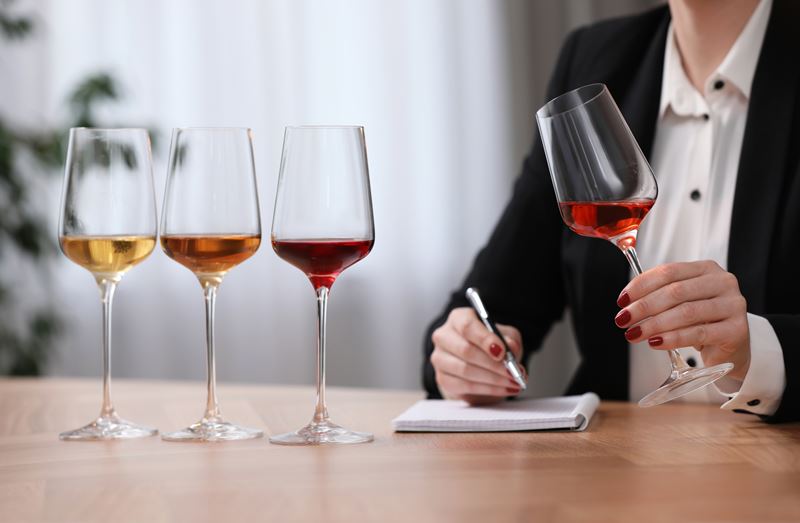New study shields wine professionals from alcohol risks
Protecting wine professionals without compromising taste
2024-02-16

In the world of wine, where the romance of viticulture and the artistry of winemaking often steal the spotlight, a less discussed yet vitally important aspect is the health and safety of the professionals behind the bottle. This includes winemakers, sommeliers, and wine critics, whose expertise and refined palates are indispensable to the industry. However, an essential part of their craft—the wine tasting process—presents unique challenges, particularly concerning alcohol exposure. Despite not swallowing, the alcohol can still enter the body through the mucous membranes in the mouth, a fact that has prompted recent research in France aimed at safeguarding these professionals' well-being.
A groundbreaking study, conducted by the Institut Coopératif du Vin (ICV) and the Union des OEnologues de France (UOEF), has shed light on strategies to minimize alcohol absorption during tasting sessions. This research is pivotal, not just for the health of the individuals involved but also for the broader implications it holds for responsible wine consumption and appreciation.
The study was meticulously designed in two phases to explore and then validate methods that could enable wine professionals to conduct their tastings without the adverse effects of alcohol consumption. Initially, the research aimed to understand how different volumes of wine and tasting techniques impacted the blood alcohol content (BAC) of tasters. A diverse group of oenologists participated in controlled tasting sessions, where the amount of wine they used and their resulting BAC were closely monitored. Surprisingly, some participants managed to maintain a BAC of zero, illustrating that it's feasible to taste wine without significant alcohol absorption.
Building on these findings, the second phase of the study focused on validating the tasting practices that could achieve such outcomes. Participants were trained in specific techniques, such as limiting the volume of wine in the mouth and avoiding extensive contact with the mouth's more absorbent areas. The results were unequivocal, with all participants maintaining a zero BAC throughout their tasting sessions.
This study doesn't just highlight the immediate benefits for the health and safety of wine professionals; it underscores a deeper truth about wine consumption. Appreciating wine, at its core, is as much about discernment and understanding as it is about sensory pleasure. By equipping oenologists with strategies to minimize alcohol absorption, we're not only safeguarding their health but also preserving the integrity of their craft.
Moreover, this careful and considered approach to wine tasting reflects a broader shift in the industry toward more sustainable and conscious practices. Wine, after all, is a gift from nature that should be enjoyed responsibly by both its creators and consumers. This study not only paves the way for safer tasting practices but also serves as a reminder that true wine appreciation extends beyond the act of drinking.
The empirical data and concrete examples from the study further solidify its findings. For instance, oenologists who limited the wine volume in their mouth to between 8 to 12 ml, without exceeding this limit, had significantly lower BAC levels compared to those who did not adhere to this practice. Additionally, participants who ensured the wine did not extensively contact the mouth's most absorbent areas also exhibited lower BAC levels.
An illustrative example from the study involves a participant named "Álex." Before adopting the new tasting practices, Álex would let the wine fill his mouth, believing it enhanced his appreciation of the wine's nuances. However, this also led to higher alcohol absorption. After being trained in the new techniques, Álex adjusted his approach, limiting the wine volume in his mouth to a maximum of 12 ml and minimizing contact with absorbent mouth areas. The result was a revelation: Álex could effectively evaluate wines without increasing his BAC.
This research underscores the importance of adopting mindful and controlled tasting techniques. They not only contribute to the health and safety of oenologists but also enable them to conduct precise and detailed wine evaluations without the risk of alcohol affecting their capabilities. The science behind wine tasting is thus enriched with practices that ensure both the integrity of the process and the well-being of those who undertake it.
Founded in 2007, Vinetur® is a registered trademark of VGSC S.L. with a long history in the wine industry.
VGSC, S.L. with VAT number B70255591 is a spanish company legally registered in the Commercial Register of the city of Santiago de Compostela, with registration number: Bulletin 181, Reference 356049 in Volume 13, Page 107, Section 6, Sheet 45028, Entry 2.
Email: [email protected]
Headquarters and offices located in Vilagarcia de Arousa, Spain.